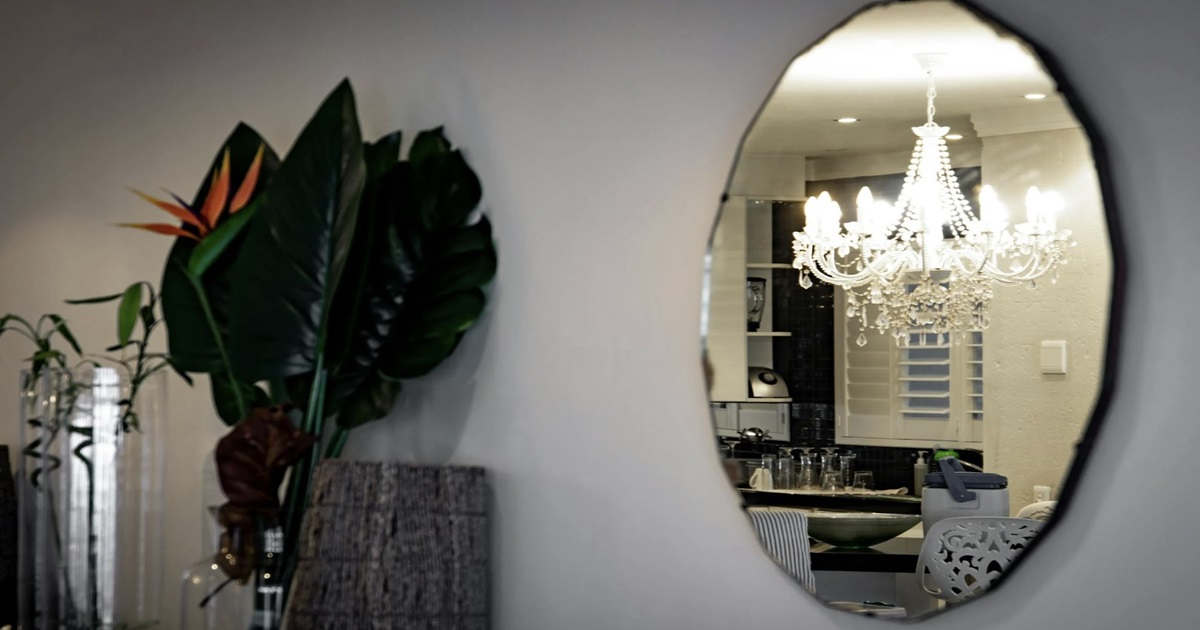This is Why People Sometimes Cover Mirrors at Night

source: Pexels
This post may contain affiliate links. If you make a purchase through links on our site, we may earn a commission.
Covering mirrors at night. Weird, right? Well, that’s what I thought until one evening, wrapped in the coziness of a friend’s old, dimly lit living room, the conversation veered into the unexpected territory of nighttime rituals. As someone who’s spent a fair share of nights binge-watching series until my eyes begged for mercy, the concept of covering mirrors as a pre-bedtime activity seemed oddly intriguing, if not a bit out of a horror flick.
But, as it turns out, this practice isn’t as bizarre as one might initially think, and it’s steeped in a rich tapestry of cultural and superstitious backgrounds. In many cultures around the globe, mirrors are more than just reflective surfaces for checking out your outfit or fixing your hair. They’re seen as portals or gateways to another realm, and covering them at night is thought to prevent unwanted spirits from making their way into our world. Imagine lying in bed and considering the possibility of another pair of eyes watching you from the other side of that glass. Gives you the shivers, doesn’t it?

This conversation sparked my curiosity, so I decided to dig deeper into why people do this interesting thing. Here’s what I found:
Cultural and Superstitious Background
In many traditions, mirrors are believed to reflect not just our physical appearance but also our souls. This belief underpins the idea that, during the vulnerable state of sleep, our spiritual defenses are down. Therefore, covering mirrors is seen as a way to protect one’s spirit from external invasions or influences. Some say it’s about keeping your soul safely inside your body, where it belongs, instead of wandering off into the mirror and getting lost or, worse, swapped.
During periods of mourning, it’s common in several cultures to cover mirrors in the house. This practice is said to be a sign of respect for the deceased, preventing their spirit from getting trapped in the mirror or, according to some beliefs, sparing the living the pain of seeing the reflection of their lost loved one. It also serves as a symbolic gesture to focus on the internal grieving process rather than on outward appearances.

This mirror-covering ritual is intertwined with the idea of balancing the energy within a space. In the realm of Feng Shui, mirrors are powerful tools that can double the energy of whatever they reflect. At night, when you’re trying to wind down, having a mirror reflect your resting body might amplify energy in a way that’s not conducive to restful sleep. Covering the mirror can thus be seen as a way to maintain harmony and tranquility in the bedroom environment.
Practical Reasons for Covering Mirrors
Apart from these mystical and spiritual reasons, there are also practical considerations that might lead someone to cover mirrors at night. For one, it could simply be about reducing light reflection. In our modern world, where even the smallest electronic devices emit some form of light, a mirror can amplify this light, making it harder to achieve complete darkness for optimal sleep.

Then there’s the psychological aspect. Seeing your reflection unexpectedly in the middle of the night can be startling, to say the least. A covered mirror eliminates this possibility, helping to create a more serene and undisturbed sleeping environment.
Is It a Common Thing?
So, do a lot of people cover their mirrors at night? While it might not be as widespread as, say, brushing teeth before bed, it’s more common than you’d think. The practice crosses cultural boundaries and is found in various forms around the world. Whether for spiritual, emotional, or practical reasons, the act of covering mirrors at night touches on a universal human experience—the pursuit of a safe, peaceful place to rest our heads.

Intrigued by my findings and the stories I’d heard, I decided to give it a try myself. I’ll admit, the first few nights felt odd, almost like I was acknowledging the presence of something unseen. But soon, it became another part of my nighttime routine, like turning off the lights or setting my alarm. Whether it’s the power of suggestion or not, I can’t deny there’s a certain peace in knowing that, at least for the night, what’s in the mirror stays in the mirror. I’m not saying that I’m going to do it more often because mirrors are okay for me just the way they are, but well, it didn’t hurt to try. So, why not…
Whether you really believe in these ideas or just want to sleep better, covering mirrors can feel surprisingly soothing. It might seem strange at first, but in the calm of the night, it could make more sense. I don’t know. Why not try it and see for yourself?